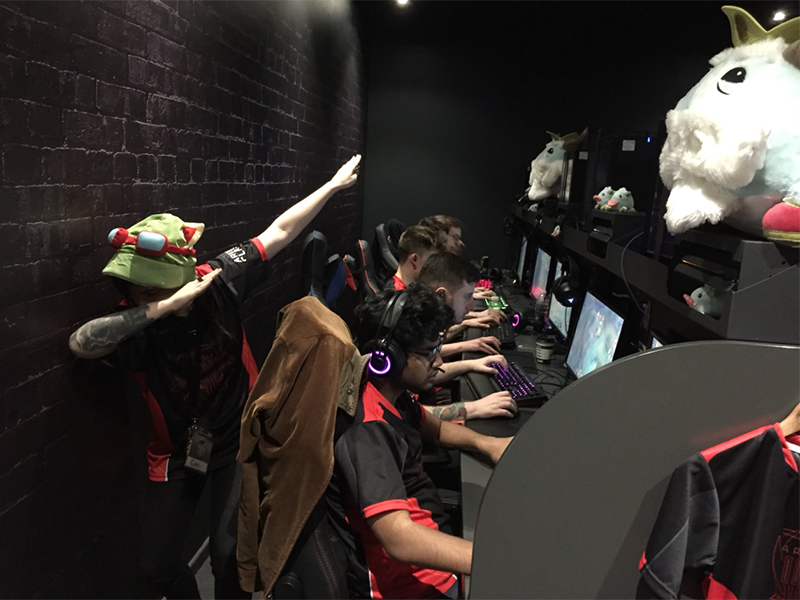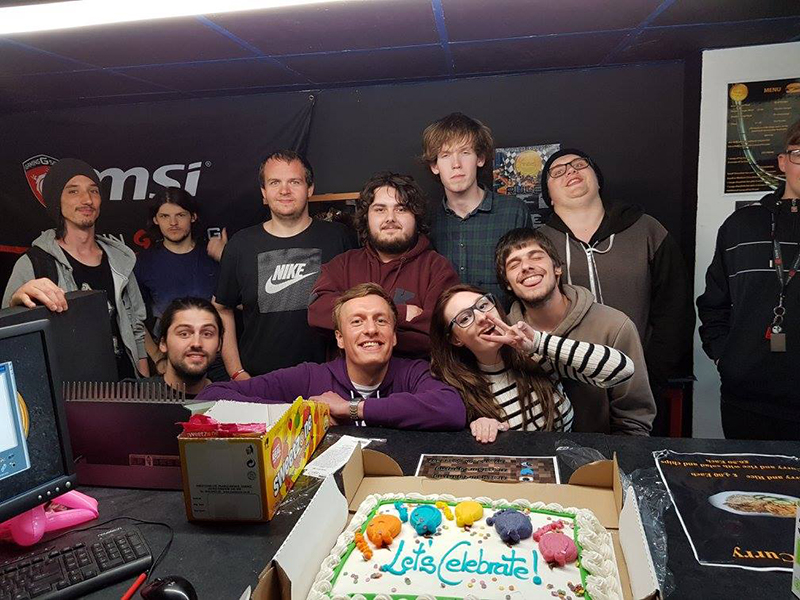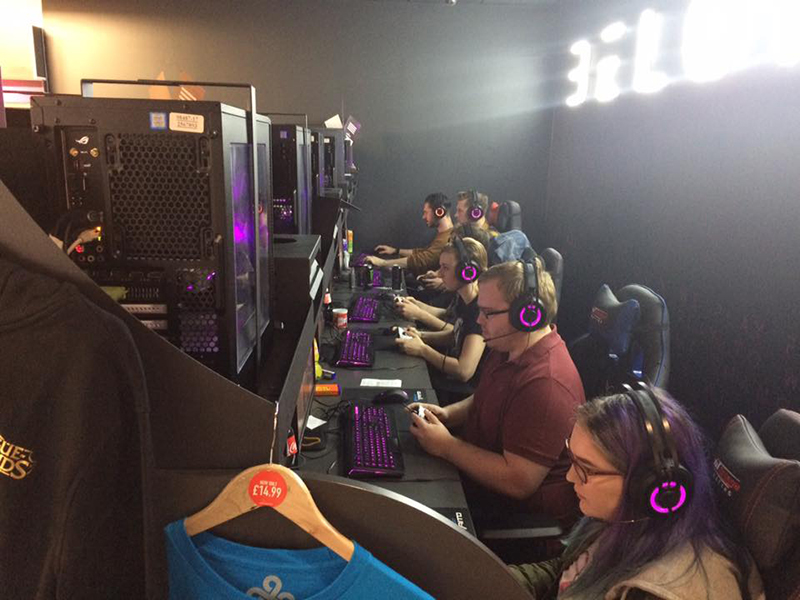Misogynistic harassment in video games routinely makes women feel unwelcome. Can Cardiff’s gaming cafés provide a safe space?

Are Cardiff’s gaming cafés safe spaces for women? Photo:Belong Cardiff.
Since she was as young as 14, Hollie Crosbie has faced misogynistic harassment when playing video games online. “It’s constant. Every comment I receive is something sexual. When I was younger I’d have men trying to manipulate me into sending naked photos. I was just a kid” she says.
Gaming’s sexism problem has been an open secret for years. With no signs of things improving online, can Cardiff’s gaming cafés provide a safe space for women?
Why are you attacking me for being a girl?
Despite a recent survey commissioned by the Internet Advertising Bureau, showing that women now make up 52% of the gaming audience in the UK, the community has a culture of misogynistic harassment. This is exemplified by a recent video from Twitch streamer Nicole Westbrook Smith. Nicole, who streams under the username nweatherservice, documents the abuse she receives through the game.
The video was picked up by some large industry outlets and re-opened the conversation about gaming culture’s misogyny problem, and the reaction was clear. The popular first person shooter Overwatch is not an exception. Online gaming’s sexism is ingrained into the culture itself, and leaves many women wondering just as Nicole does, “Why are you attacking me for being a girl?”
As Alice Bell, editor of Videogamer explains, a common tactic for women to escape abuse is to disable their microphones entirely. “I used to play online a lot. I went up on mic once and a member of the other team started making jokes about periods. Asking if I’d woken up with bloody sheets and stuff. Now I never play with my mic up unless I know everyone on the channel” she said.
In the face of a culture that treats male gamers as the ‘default’, women are literally silenced, forced to become anonymous to avoid being attacked for their gender.
“The small, mean people who are abusive online need the anonymity to do it at all”
So what is the solution? The answer could lie in the very anonymity that women are forced to adopt. Can real-life gaming spaces such as Cardiff’s gaming cafés, which strip away anonymity of both the abuser and their victims, provide safe spaces from misogynistic harassment?
“I’ve gone to gaming cafés a few times,” says Alice, “I’ve never had any bad experiences in environments like that. I think you have a little more control over the situation, and there are staff around to step in. I think the main thing is that it’s quite hard to be abusive to someone face to face. The small, mean people who are abusive online need the anonymity to do it at all.”
Bear Operanta from Cardiff gaming café Talk & Surf agrees. “I think the veil of anonymity is abused online” he says, “face to face is different. When you see this is a real person you’re talking to, you just don’t say these things.”

The Talk & Surf team celebrated their third birthday with the community. Photo:Talk&Surf.
Bear, who organises Talk & Surf’s fighting tournaments, sees gaming cafés as safer spaces for women “A lot of our regulars are women, and they’re a core part of our community. Gender doesn’t come into it” he says.
The presence of reliable and immediate moderation is also a factor in creating a more welcoming atmosphere. Online, games are rarely if ever moderated, providing gaming cafés a clear advantage.
As the manager of Cardiff’s BELONG gaming arena, Kelly McMahon explains. “When it comes to being in the arena, everyone has the right to safe and fun gaming without being targeted. We tend to look out for signs of people in the arena making people stressed or uncomfortable, and we give warnings. Failure to comply, and they’re asked to leave.”
Kelly hopes that by providing safety from harassment, real-life gaming spaces can open up the hobby to a wider audience. “Our main goal is to get everyone involved,” she explains, “Women, kids, pro players, casual players, we want to ensure everyone gets treated fairly. Gaming is awesome, and everyone should be able to take part.”

Belong runs a number of gaming events throughout the year. Photo:Belong Cardiff.
Kelly hopes to change the narrative around abuse in gaming too: “I saw the coverage about the harassment in Overwatch, and the comments saying ‘Yeah, that’s the norm!’ I don’t understand why people would think behaviour like that is okay to be ‘the norm’.”
I’m more confident and comfortable with being a gamer
By stripping away the anonymity that protects harassers, and by providing adequate moderation to protect gamers, gaming cafés can create a space where women can not only feel safe, but a part of a wider community that allows them to explore an otherwise hostile hobby. Crucially, allowing women to escape the anonymity that’s forced upon them online sends a message to young girls that it’s okay to have an interest in gaming.
Hollie Crosbie has been playing games since she was a child. “At school I felt like a weirdo because there were no other girls who liked games.” she says.
“Having public women in the community definitely makes it feel more welcoming,” she says. “Now I’ve found other women who play games I feel so much more comfortable with it. In high school I felt isolated, but now I’m more confident and comfortable with being a gamer.”
